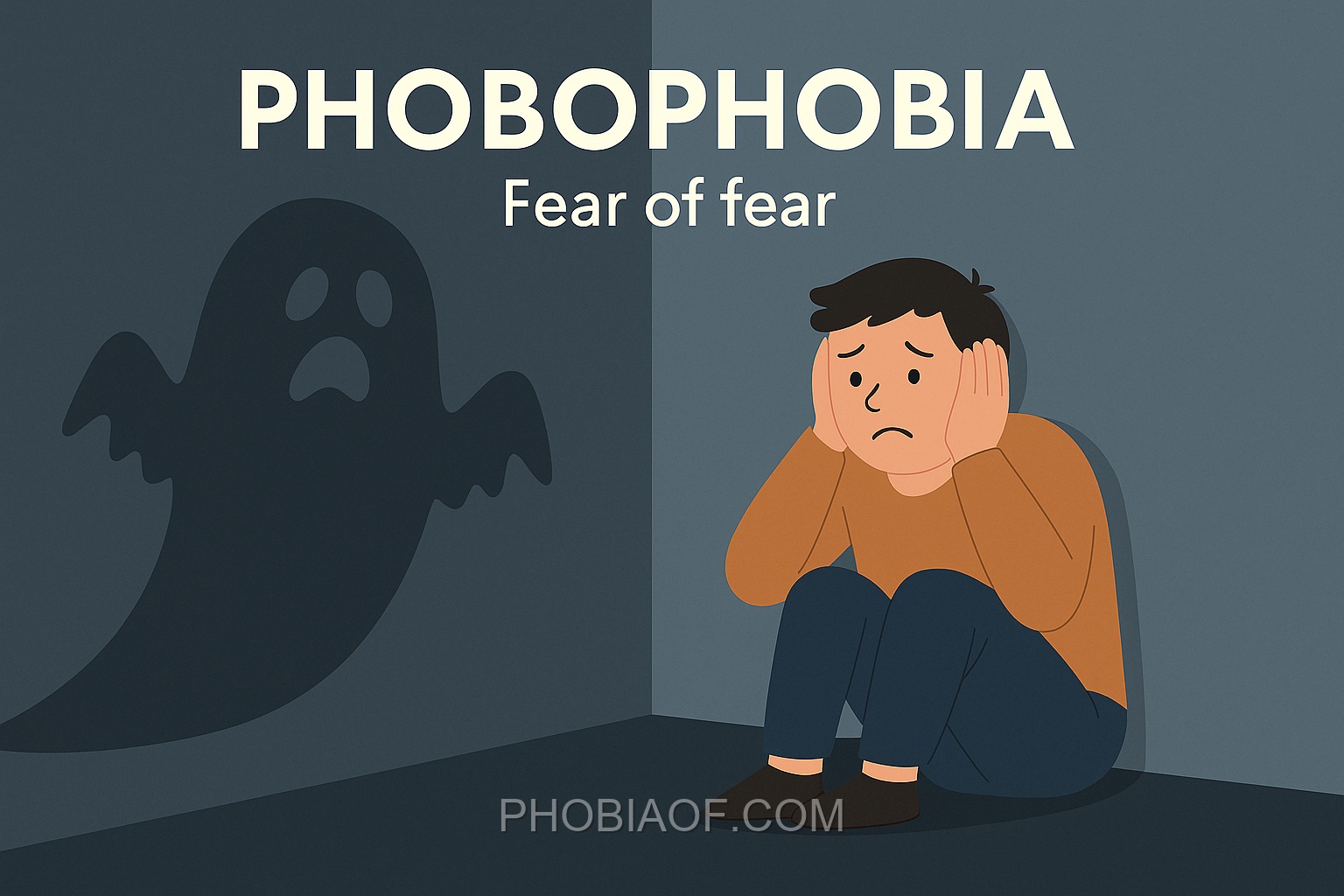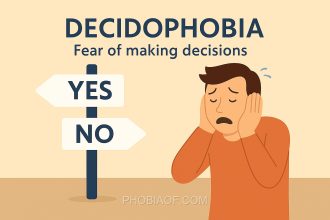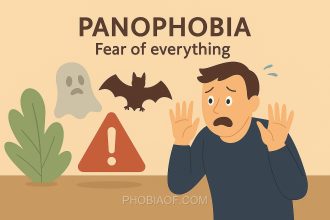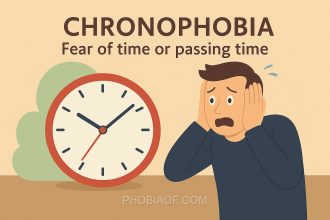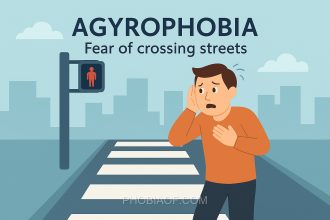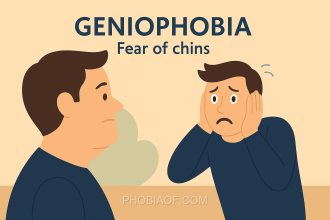Have you ever found yourself anxious about becoming anxious or fearful of having fear itself? This might sound perplexing, but it’s a real and challenging condition known as Phobophobia.
Phobophobia, derived from the Greek words “phobos” meaning fear, is literally the fear of fear. It is a unique anxiety disorder where individuals become intensely worried about the possibility of experiencing a phobia or anxiety, creating a self-perpetuating cycle of fear.
People with phobophobia often live in a constant state of tension, worrying about when the next wave of anxiety might hit. This anticipatory fear can affect their daily lives, relationships, and overall well-being. It’s a bit like a fear of the unknown, where the fear itself becomes the focus rather than any specific object or situation.
Understanding phobophobia requires compassion and empathy, as it is a deeply personal and often misunderstood condition. It affects individuals differently, but common experiences include:
- Constant anxiety about experiencing fear-related symptoms.
- Avoidance of situations or activities that might trigger anxiety.
- Impact on mental health, leading to further anxiety disorders.
Phobophobia can be a daunting experience, but recognizing it is a crucial first step towards managing and overcoming the fear. With appropriate support and treatment, individuals can learn to navigate their fears and regain control over their lives.
Causes of Phobophobia
Phobophobia, the fear of developing a phobia, can be influenced by several factors. Understanding these causes can help in addressing and managing this fear effectively. Below are some potential causes that might lead to the development of phobophobia:
- Genetic Predisposition:
Some individuals may have a genetic tendency that makes them more susceptible to anxiety disorders, including phobophobia. A family history of phobias or anxiety can increase the likelihood of developing this fear.
- Traumatic Experiences:
Experiencing or witnessing a traumatic event can contribute to the development of phobophobia. Such experiences can lead to heightened anxiety and fear about encountering similar situations in the future.
- Learned Behavior:
Phobophobia can sometimes be learned by observing others. If a person grows up around individuals who have phobias or exhibit anxiety, they might adopt similar fears through observation and imitation.
- Psychological Factors:
Underlying psychological conditions, such as generalized anxiety disorder or obsessive-compulsive disorder, can predispose someone to phobophobia. The constant worry about developing new fears can become overwhelming.
- Environmental Factors:
Stressful environments or situations that cause high levels of anxiety can trigger phobophobia. Changes in life circumstances or increased pressures can heighten sensitivity to developing fears.
Research has shown that phobophobia often coexists with other anxiety disorders, indicating a complex interplay between various psychological and environmental factors. Understanding these factors can aid in developing effective coping strategies and treatments for those affected.
Symptoms of Phobophobia
Phobophobia is characterized by an intense fear or anxiety of developing a phobia. This condition can manifest in various ways, affecting both the mind and body. Recognizing these symptoms is vital to understanding and managing the condition. Below is a list of common symptoms experienced by those with phobophobia:
Physical Symptoms:
- Experiencing panic attacks, which may include chest pain, dizziness, or feeling out of control.
- Profuse sweating, especially when thinking about the possibility of developing a phobia.
- Rapid heartbeat or palpitations, often triggered by anxiety or fear.
- Shortness of breath or hyperventilation, which can exacerbate feelings of panic.
- Muscle tension or trembling, particularly in situations perceived as anxiety-provoking.
Emotional and Behavioral Symptoms:
- A pervasive and overwhelming sense of dread about developing a new phobia.
- Avoidance of situations or stimuli that might trigger thoughts of phobias.
- Constant worry about the possible onset of a phobia, often leading to a heightened state of anxiety.
- Difficulty concentrating on tasks due to intrusive thoughts about phobias.
- Feelings of helplessness or hopelessness as the fear of phobias dominates one’s thoughts.
When phobophobia is severe, these symptoms can significantly interfere with daily life, making it difficult to engage in routine activities or maintain personal and professional relationships.
Treatment for Fear of Fear (Phobophobia)
Phobophobia, the fear of fear itself, can be a challenging condition, but it is important to know that it can be treated and managed over time. With the right approach, individuals can learn to overcome this phobia and regain control over their lives. Below are some treatment options and coping strategies that have been proven effective in managing Phobophobia.
Proven Therapies
Several therapeutic approaches can help individuals confront and manage their fear of fear:
- Exposure Therapy: This therapy involves gradually and systematically facing the fear. By slowly exposing oneself to the source of fear in a controlled environment, individuals can learn to diminish their anxiety responses over time.
- Cognitive-Behavioral Therapy (CBT): CBT works by helping individuals identify and change distorted thought patterns that contribute to their fear. By restructuring these thoughts, individuals can reduce their fear response and develop healthier coping mechanisms.
- Counseling: Engaging in regular sessions with a mental health professional can provide support and guidance. Counseling allows individuals to explore the underlying causes of their phobia and work through their fears in a safe space.
Self-Help Coping Techniques
In addition to professional therapy, there are self-help strategies that can complement the treatment process:
- Relaxation Exercises: Techniques such as deep breathing, progressive muscle relaxation, and visualization can help calm the mind and reduce anxiety symptoms.
- Meditation: Regular meditation practice can enhance mindfulness and reduce overall anxiety, helping individuals become more aware of their thoughts and feelings without being overwhelmed by them.
- Support Groups: Joining a support group can provide a sense of community and shared experience. Discussing challenges and successes with others who understand can be incredibly validating and empowering.
Medication
While therapy and coping skills should be the primary focus, medication may be considered in severe cases of Phobophobia. Anti-anxiety medications can help manage symptoms, but they should be used under the guidance of a healthcare professional and typically as a complement to therapy.
Remember, seeking professional help is a crucial step if Phobophobia is interfering with your daily life. Mental health professionals can provide the necessary tools and support to guide you on your journey to overcoming fear of fear. With patience and commitment, it is entirely possible to manage this phobia and lead a fulfilling life.
Conclusion
Understanding the causes and symptoms of phobophobia can be a powerful first step toward managing and overcoming this challenging condition. By recognizing the ways in which fear of fear can manifest, individuals are better equipped to address their phobia head-on. Awareness can lead to proactive measures, empowering those affected to regain control over their lives.
It is important to remember that many people successfully overcome or manage their phobias with time and the right support. If you or someone you know is struggling with phobophobia, consider seeking professional help. Therapy or a consultation with a doctor can provide tailored strategies and interventions that promote healing and resilience.
Take heart in knowing that you are not alone in this journey. With patience, persistence, and the right resources, overcoming phobophobia is entirely possible. Remember, a brighter, more fearless future awaits.
